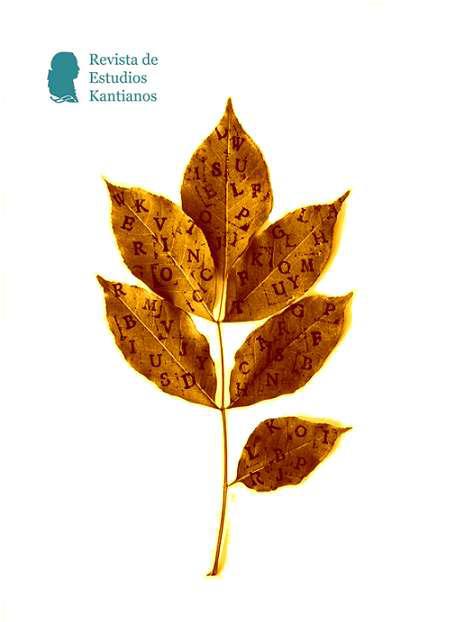Kant’s Critique of the Wolffian “Mathematical Method” and the Ontological Question of Principles in the Deutlichkeit (1764)
DOI:
https://doi.org/10.7203/REK.8.2.27512Palabras clave:
Wolff, Kant, Mathematical Method, Ontology, Metaphysics Resumen
Resumen
This paper examines some key aspects of Kant’s critique of Wolffian mathematical method in the Deutlichkeit (1764). The aim is to show how the ontological question of principles underlies this critique. To do so, I will first show that Wolff identifies the mathematical method with a universal model of inquiry, which is based on the principles of rationalist ontology. I will therefore focus on a key element of this model, namely that of definition. In doing so, I will be able to show that it is precisely by looking at the process of definition that Kant makes his distinction between the synthetic model of mathematics and the analytic one of philosophy. Finally, I will show that for Kant, albeit differently, both these models are not reducible to the formal principles of rationalist ontology.
 Descargas
Descargas
 Citas
Citas
Primary Sources
Wolff, C. (1968), Gesammelte Werke. Olm, Hildesheim.
Kant, I. (1902), Kants Gesammelte Schriften. Königlich Preußische Akademie der Wissenschaften (hrsg.), vol. 1-29, Berlin, Walter de Gruyter.
Kant, I. (1992), Theoretical Philosophy, 1755–1770. En Walford D. & Meerbote R. (Ed.). Cambridge University Press.
Secondary Sources
Basso, P. (2004) Il secolo geometrico. La questione del metodo matematico in filosofia da Spinoza a Kant. Casa Editrice Le Lettere.
Campo, M. (1939), Cristiano Wolff E Il Razionalismo Precritico. Vita e Pensiero.
Cassirer, E. (1921), Kants Leben und Lehre, Berlin.
Cicatello A. (2012), Ontologia critica metafisica. Studio su Kant. Mimesis.
Corr, C.A. (1972), Christian Wolff’s Treatment of Scientific Discovery. «Review of History of Philosophy», 10 (1972), pp. 323-334.
De Boer, K. (2020), Kant’s Reform of Metaphysics: The Critique of Pure Reason Reconsidered. Cambridge University Press.
De Felice, F. (2011), Il problema del metodo nella Deutlichkeit. En Cataldi Madonna, L., & Rumore, P. (Ed.), Kant und die Aufklärung. Akten der Kant-Tagung in Sulmona, 24.- 28. März 2010. Georg Olms Verlag.
De Felice, F. (2016), Il principio di ragion sufficiente: considerazioni sulla concezione wolffiana. Rivista di Filosofia Neo-Scolastica, 108 (1), 91-113.
De Vleeschauwer, H.J. (1931), La genèse de la méthode mathématique de Wolff. Revue Belge de Philologie et d’Histoire, 11, 651–77.
Engfer, H.-J. (1982) Philosophie als Analysis. Frommann-Holzboog.
Engfer, H.-J. (1986) „Zur Bedeutung Wolffs für die Methodendiskussion der deutschen Aufklärungsphilosophie: Analytische und synthetische Methode bei Wolff und beim vorkritischen Kant“. En Schneiders, W. (Ed.), Christian Wolff. 1679-1754. Meiner.
Gava, G. (2018), Kant, Wolff and the Method of Philosophy. Oxford Studies in Early Modern Philosophy, 8, 271-303.
Koriako, D. (1999) Kants Philosophie der Mathematik. En W. Brandt, Reinhard; Stark (Ed.), Hamburg: Meiner.
Langbehn, L. (2014,) La concepción kantiana del método matemático en su escrito Sobre la nitidez de los principios de la teología natural y la moral. En Caimi M. (Ed) Temas kantianos, PROMETEO LIBROS.
Lorini, G. (2011), Lessico e metodo dell’ontologia wolffiana: una premessa all’innovazione filosofica in Germania nel XVIII secolo. En Piaia G. and Forlivesi M. (Ed), Innovazione filosofica e università tra Cinquecento e primo Novecento. Cleup.
Lorini, G. (2016), Fonti e Lessico dell’ontologia kantiana. I Corsi di Metafisica (1762-1795). Edizioni ETS.
Malter, R. (1979), L’analyse comme procédé de la métaphysique. Archives de Philosophie, 42, 575-591.
Marcolungo, F.L. (1989), Wolff e il problema del metodo. En Carboncini S., Cataldi Madonna L. (Ed.), Nuovi studi sul pensiero di Christian Wolff. Il Cannocchiale.
Martínez, L. (2018), Kant y el concurso de la Academia de Ciencias de Berlín en 1763. En Pringe H. (Ed.), Investigaciones Kantianas. Homenaje a Juan Bonaccini (237-258). UFPE editora, Recife.
Risse, W. (1964). Die Logik der Neuzeit. Stuttgart: Frommann-Holzboog.
Schönfeld, M., (1998), Dogmatic Metaphysics and Tschirnhaus’s Methodology. Journal of the History of Philosophy, 36 (1), 57-76.
Tonelli, G. (1955), Kant, dall’estetica metafisica all'estetica psico-empirica: Studi sulla genesi del criticismo 1754-1771 e sulle sue fonti. Memorie dell’Accademia delle Scienze di Torino.
Tonelli, G. (1959), Elementi metodologici e metafisici in Kant dal 1745 al 1768. Saggio di sociologia della conoscenza. Edizioni di Filosofia.
Tutor, J.I.G. (2004), Die wissenschaftliche Methode bei Christian Wolff, (Hildesheim: Olms, 2004), 20, 32-36.
Vogt, W., (2005), Moses Mendelssohns Beschreibung der Wirklichkeit menschlichen Erkennens. Cord-Friedrich Berghahn.
Watkins, E. (2012). The early Kant’s (anti-) Newtonianism. Studies in History and Philosophy of Science, 44 (3), 429-437.
Wundt, W. (1924), Kant als Metaphysiker, Stuttgart: Enke.
Winter, E. (ed.) (1957) Die Registres ds Berliner Akademie der Wissenschaften 1746- 1766. Berlin.
Publicado
Cómo citar
-
Resumen376
-
PDF0
Número
Sección
Licencia
![]()
Los autores que publican en esta revista están de acuerdo con los siguientes términos:
- Los autores conservan los derechos de autor y garantizan a la revista el derecho de ser la primera publicación del trabajo al igual que licenciado bajo una Creative Commons Attribution License que permite a otros compartir el trabajo con un reconocimiento de la autoría del trabajo y la publicación inicial en esta revista.
- Los autores pueden establecer por separado acuerdos adicionales para la distribución no exclusiva de la versión de la obra publicada en la revista (por ejemplo, situarlo en un repositorio institucional o publicarlo en un libro), con un reconocimiento de su publicación inicial en esta revista.
- Se permite y se anima a los autores a difundir sus trabajos electrónicamente (por ejemplo, en repositorios institucionales o en su propio sitio web) antes y durante el proceso de envío, ya que puede dar lugar a intercambios productivos, así como a una citación más temprana y mayor de los trabajos publicados (Véase The Effect of Open Access) (en inglés).








